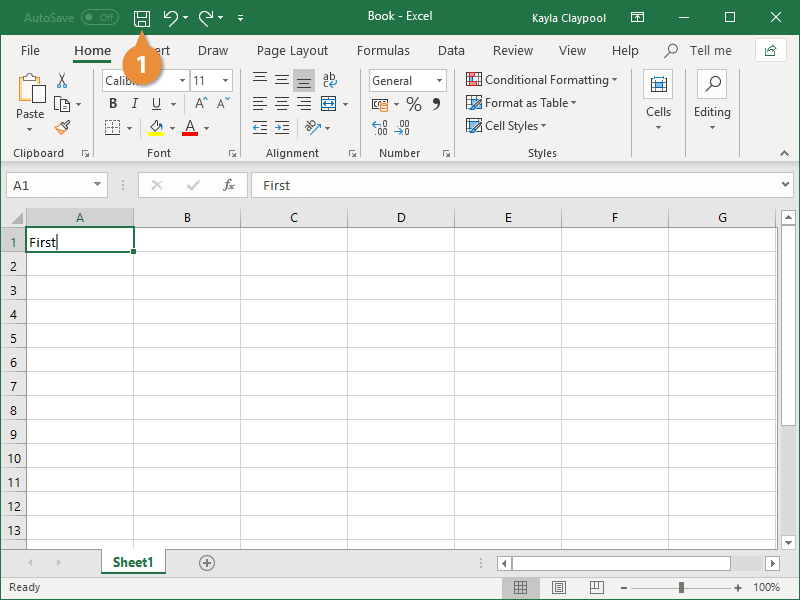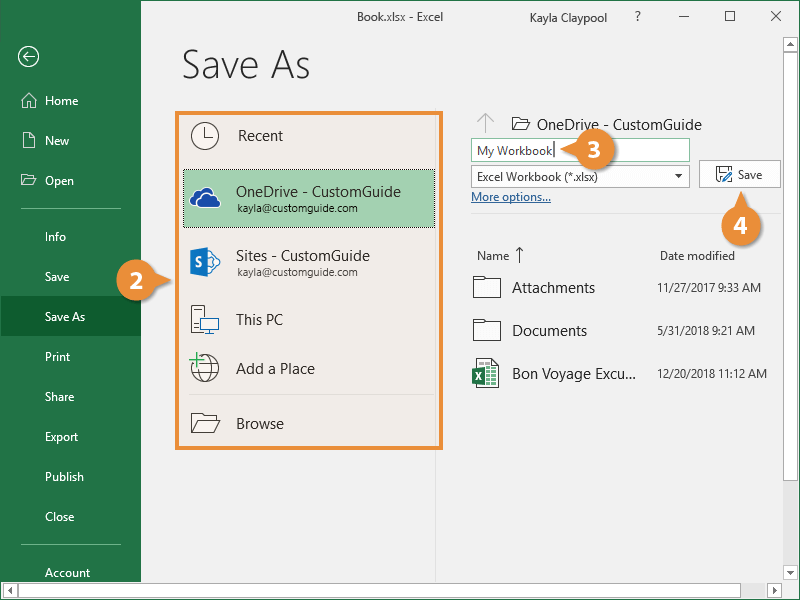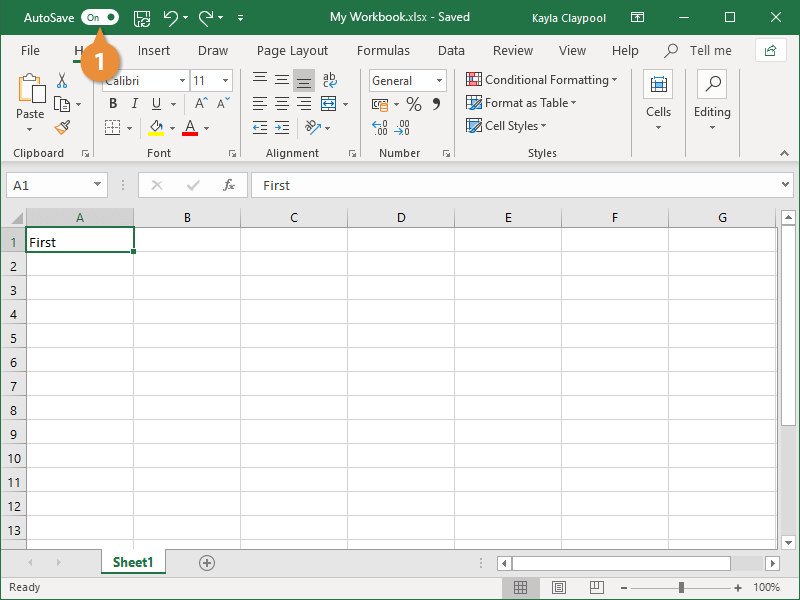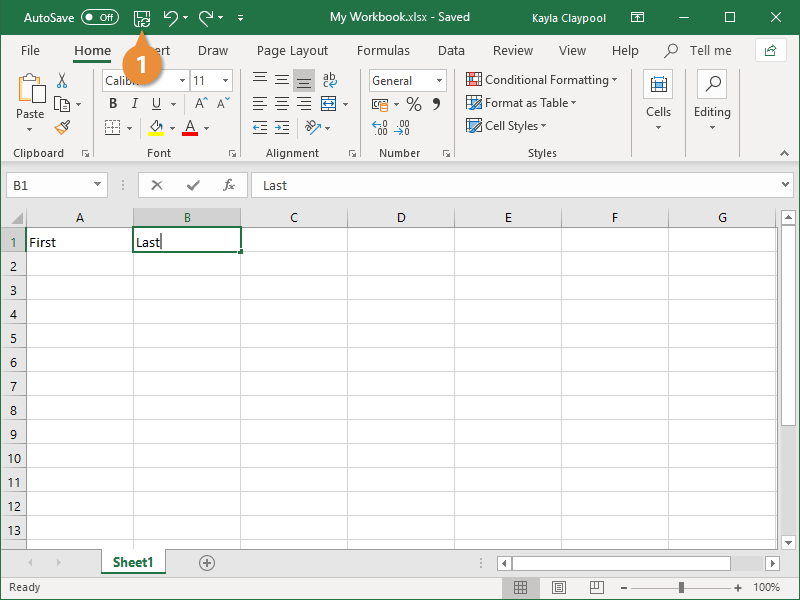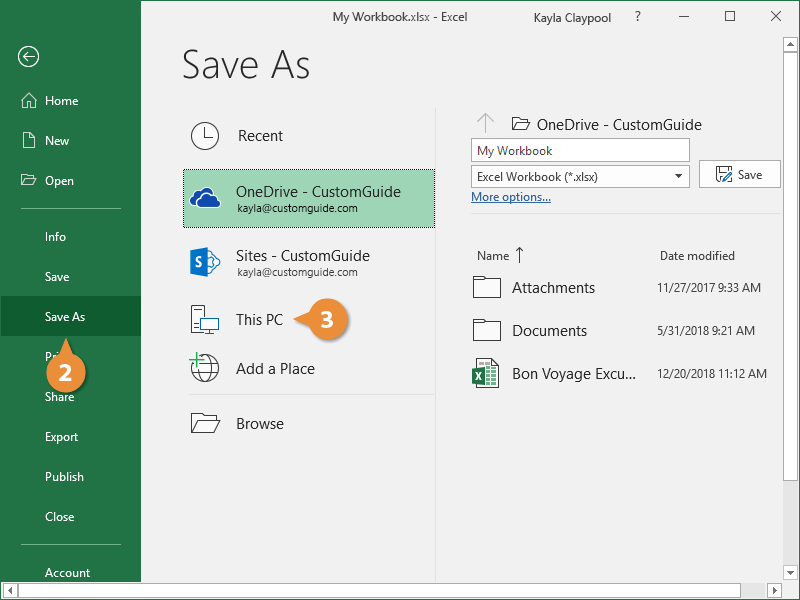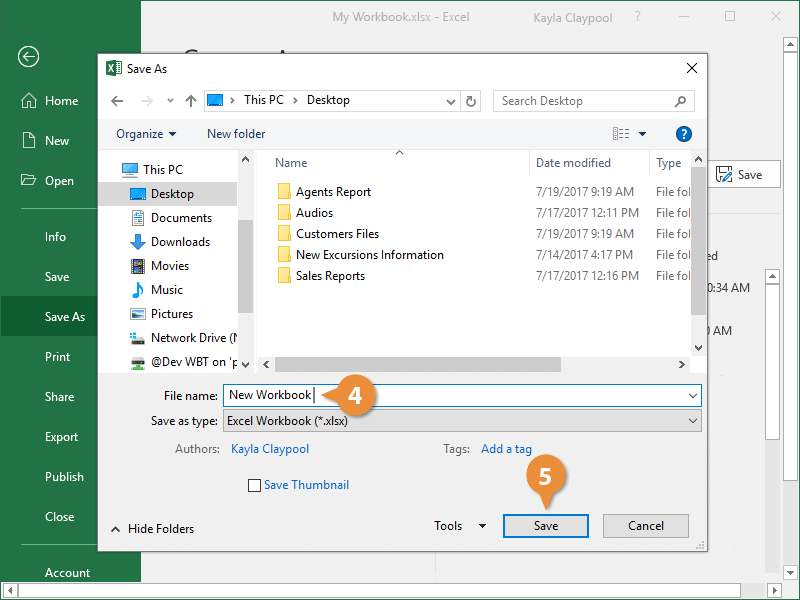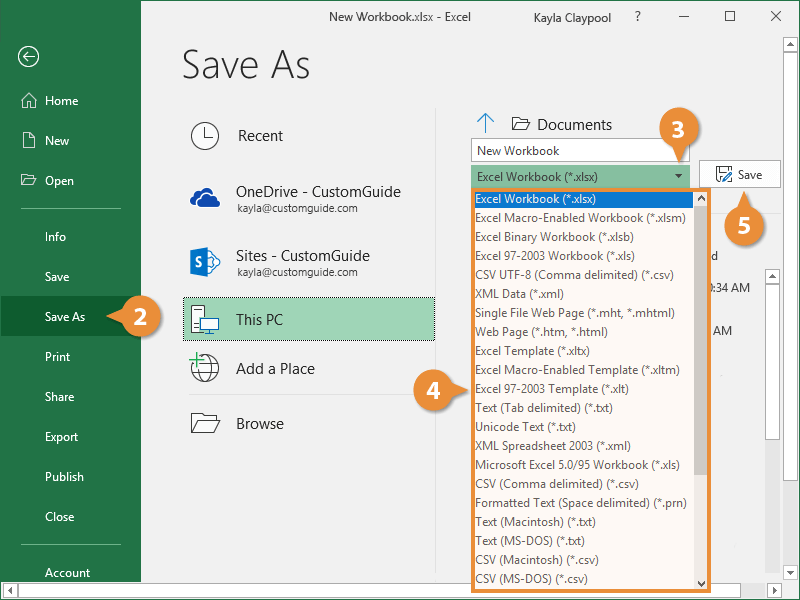After you’ve created a workbook, you need to save it if you want to use it again. Also, if you make changes to a workbook you’ll want to save it. You can even save a copy of an existing workbook with a new name, to a different location, or using a different file type.
Once you’ve created a new workbook, you’ll need to save it if you want to use it again.
- Click the Save button.
Press Ctrl + S to quickly save a workbook.
If this is the first time you’ve saved the workbook, the Save As screen will appear.
- Choose where you want to save your file:
- OneDrive: Save to Microsoft’s cloud-based storage so you can open the worksheet on another computer.
- SharePoint: Save the workbook to a connected SharePoint server.
- This PC: Save to the local storage on your computer.
- Browse: Opens a dialog box, where you can browse through your computer’s folders, drives, and network shares.
- Enter a file name.
- Click Save.
If an Excel file is saved online, the AutoSave feature in the top-left is automatically turned on. However, this can be changed as needed.
- Click the AutoSave toggle button to turn the feature on or off.
As you continue to work in Excel, you'll want to save any changes you make from time to time.
- Click the Save button.
Press Ctrl + S to quickly save a workbook.
Try to save your progress every 10 minutes; that way you won’t lose any important changes if disaster strikes.
Sometimes you may want to make a copy of an existing workbook and save it with a new name. Using and modifying the content in an existing workbook can often save you a lot of time.
- Click the File tab.
- Click Save As.
- Click This PC to navigate to the folder you want to save your file.
- Enter a File name.
- Click Save.
Excel normally saves its files as Excel workbooks, but you can save information to other file formats as well. For example, sometimes you may want to save your data as a Comma Separated Values or CSV file, so you can import it into another program.
- Click the File tab.
- Click Save As.
- Click the Save as type list arrow.
The default file type is an XLSX Excel file, but you can choose from plenty of other file formats in this menu.
- Select the desired format.
- Click Save.
| File Type |
Extension |
Description |
| CSV |
.csv |
Comma delimited text file, often used to import/export data. |
| Excel Workbook |
.xlsx |
The default XLM-based file format for Excel, in use since Excel 2007. |
| Excel 97-2003 Workbook |
.xls |
Excel files from Excel 2003 and older. |
| Excel Macro-Enabled Template |
.xlsm |
Excel template that contains macros. |
| Excel Template |
.xltx |
Excel template files. |
| PDF |
.pdf |
Portable Document Format, a format that preserves document formatting and allows file sharing. |
| Web Page |
.html |
A web page that is saved as a folder and contains an .htm file and supporting files, such as images. |

